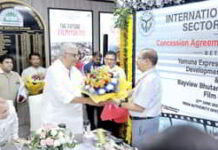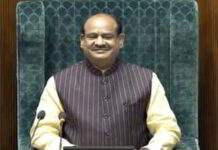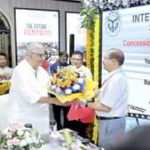Third avatar: On a third term for Narendra Modi
The mandate is for Narendra Modi to change his approach to governance
Elected the leader of the National Democratic Alliance (NDA) on June 7, Narendra Modi is set to become Prime Minister for a third consecutive term. The swearing-in is to be on June 9. Though the Bharatiya Janata Party (BJP) fell short of a majority in the Lok Sabha, the NDA appears well poised for the third term, in terms of numbers and political compatibility among its partners. Key partners were effusive in their praise for Mr. Modi at the NDA meeting, who in turn struck all the conciliatory notes. He promised to strive for unanimity in all decisions taken by his next government, and underscored a commitment to ‘sarv pantha sambhava’ — equality of all sects. Telugu Desam Party leader N. Chandrababu Naidu, who is set to return as the Chief Minister of Andhra Pradesh, and Bihar Chief Minister and Janata Dal (United) leader Nitish Kumar — two partners as part of the pre-poll alliance that won the 2024 election and with the largest numbers after the BJP — showed no ambiguity in staying the course with the BJP. The alliance is off to a harmonious beginning, and it will require leadership and compromise by all parties to keep it that way. While all partners declared their respect for the renewed mandate for Mr. Modi, it is only natural that the caveat of coalition will apply too. The BJP’s numbers are higher than its own under A.B. Vajpayee and of the Congress-led UPA governments, from 2004 to 2014.
Unanimity on all issues is not easy, but consultations can be, and those should go beyond the NDA’s partners. Mr. Modi said he looked forward to more debates in the 18th Lok Sabha — a case that cannot be overstated, considering the erosion of parliamentary authority during the 17th Lok Sabha. Mr. Modi’s second term had begun with a promise of seeking the trust of all — sabka vishwas, as he called it. That promise remained largely unrealised, particularly with regard to the religious minorities. There was no numerical restraint during the second term for Mr. Modi, but during his third, his government’s survival will be dependent on non-BJP partners, necessitating compromises. The test of the democratic spirit will be in consensus building beyond the ruling coalition. The BJP, despite the setback it faced in the general election in heartland strongholds, expanded its footprint among new regions and communities in the south and the northeast, a point Mr. Modi noted in his speech at the NDA meeting. The Opposition too has emerged as a stronger presence in Parliament. The fresh mandate for Mr. Modi necessitates that he change his approach to governance and politics.
















